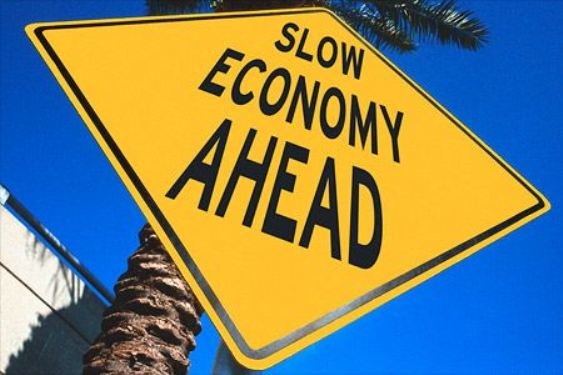
In a recent book, Larry Summers, Paul Krugman, and Barry Eichengreen, among other renowned macroeconomists, suggest that structural changes in the global economy have ushered in a period of slow growth.
This theory, known as “secular stagnation,” posits that we have entered an era of slower growth brought on by an aging population, slowing technology expansion, and increasing income inequality.
Is economic stagnation inevitable? Or is it a result of people’s attitudes, actions and choices?
It sounds like economists are trying to get us ready for an era of slow or no growth. They don’t want us to call it a malaise, a downturn or a permanent recession. Even though it is all of those things, these terms and concepts imply a lack of inevitability, or the presence of choice, that they evidently don’t want us to consider.
Today’s leaders are mighty interesting. Here we can’t predict the weather three days from now, but they want us to take questionable theoretical projections of centuries-long weather trends (global warming) and immediately restructure the entire economy (under government control, of course) based on these theoretical projections.
But when we learn that the economic growth after the Great Recession is actually slower than the economic growth following the Great Depression of the 1930s, they want us to merely accept it. It’s the fact that people are getting are older, times change, people change … what can you do? [Source: see pjmedia.com 9/6/14]
Krugman and Summers are economists with a particular point of view. They favor the economic policies which call for high taxation and always-more government intervention in the private economy.
One of the criticisms of these policies is that they impede or hamper economic growth. Unemployment is higher than it would be, and economic growth slows to a projected 2.6 percent per year (best case) rather than the 4 percent it might have enjoyed, or even higher if we had a truly laissez-faire market economy. (These are the projections of the Congressional Budget Office.)
It’s more than pessimism. It’s intellectual dishonesty in the form of rationalization. “Well, we certainly can’t look at changing anything. We can’t lower taxes or eliminate regulations. We can’t discuss doing away with federal agencies that impede economic growth and really do nothing other than to protect some interest groups at the expense of others.” None of that is open for discussion. What happened to “change”? Not that kind of change.
The only thing proposed is more of the same. Higher taxes. New taxes. More government controls, regulations and agencies. While you’re at it, increase the minimum wage — thus creating the pretense that we have a growing economy, as if we could force or wish it into existence simply by passing a feel-good law.
America’s economic stagnation is primarily psychological, and ultimately ideological and philosophical. It’s not a matter of numbers. It’s an issue of emotions, behaviors, and ultimately ideas.
The psychological problem is envy. America’s leaders, and many Americans themselves, cannot tolerate the idea of restoring a free market private economy on the scale we briefly enjoyed in the earlier years of the Republic. The reason is that this will make a lot of people really rich. Others will not be as rich. Some people don’t like that income inequality, even if it stems from a rising standard of living for all (which unhampered capitalism always produces).
Another reason is fear. People are petrified that if we don’t have government agencies and officials getting involved in every last tiny detail of our lives, civilization will collapse. Yet most can plainly see how absurd, inefficient, and even unjust (look at the IRS) these agencies are on a daily basis. These are the people to whom we entrust the kind of oversight we assume we cannot live without? It makes no rational sense, not even on its own terms. America grew into the strongest and most vibrant economy in human history without any of these ridiculous government agencies monitoring everything we do. But fear carries the day. “We just can’t let the government let go of control.” In the abstract, poll after poll shows Americans wanting less government. Yet in any individual case — this or that subsidy, this or that government rule — there’s no way we’re going to touch it. To be fair, most voters would not let them.
Fear and envy are the psychological factors plaguing us. Because so many of us suffer from these emotional problems, the majority will not allow even tepid steps in the direction of more economic freedom. Without that economic freedom, we will continue to see this “secular stagnation” that our most respect economists are telling us is a perfectly reasonable — and inevitable — thing.
It’s not.
The ultimate cause of psychological emotional problems is ideological. Mistaken or distorted ideas lead to irrational fear, and irrational emotions translate into bad practices. Since a society is nothing more than a collection of individuals, this applies on the social level no less than the individual level.
Ideas come from philosophy. We generally spend even less time thinking about philosophy than we do about psychology. But it’s time to start thinking about both. Many of you have children. If you want your children to grow up in a more prosperous and better world than the one we have today, then you’d better reexamine your fears and the ideas upon which they rest. Ideas have consequences. And we owe it to ourselves to look for better ideas than the depressing, gray and fatalistic notions espoused by the people we have put in charge.
Be sure to “friend” Dr. Hurd on Facebook. Search under “Michael Hurd” (Rehoboth Beach DE). Get up-to-the-minute postings, recommended articles and links, and engage in back-and-forth discussion with Dr. Hurd on topics of interest. Also follow Dr. Hurd on Twitter at @MichaelJHurd1
